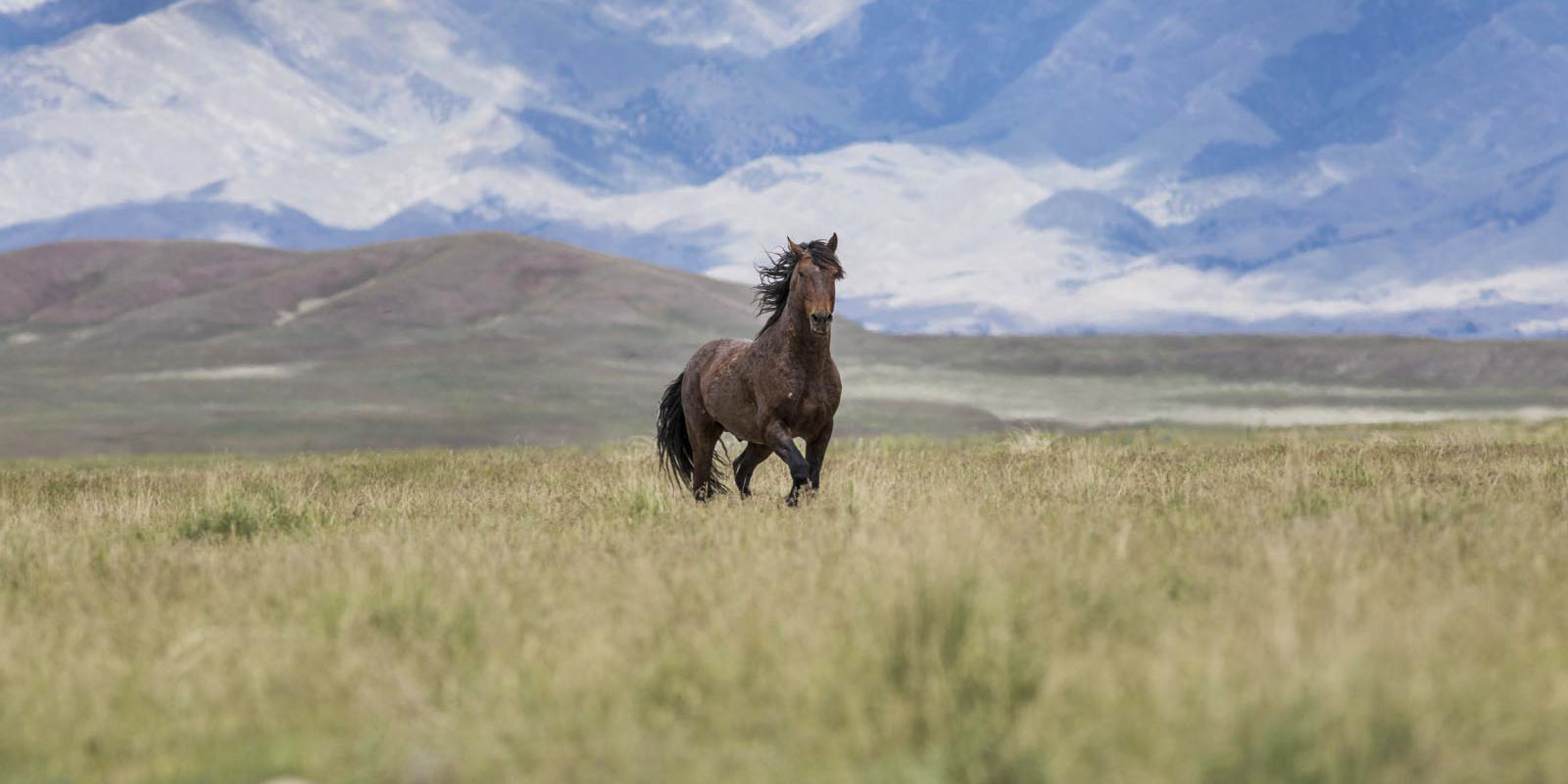Last night's election results changed the playing field for many issues, including the fight to protect wild horses and burros. The power shift in the House of Representatives makes it extremely unlikely that the Interior Department's agenda of mass roundups, sterilization and slaughter will become reality, but making proactive change in a divided Congress is going to take real work. Meanwhile, developments in states may open the door to driving change at the local level. Here are some key election results that have implications for wild horses and burros.
Governors
In Colorado, Congressman Jared Polis, who has been a strong proponent of wild horse and burro protection, was elected governor. Colorado has several significant wild horse herds that provide important ecotourism activities in the state. Many of these herds are managed using birth control, and we look forward to working with Governor elect Polis to ensure that Colorado continues to lead the way in humane and sustainable wild horse management.
In Arizona, Governor Doug Ducey was re-elected. In 2016, Governor Ducey touted his efforts to protect "our wild horses’ right to roam free without fear of danger and harassment" as a top achievement of his administration that year. Gov. Ducey's support has been critical to securing protection and humane management for the cherished Salt River wild horses. We look forward to working with Gov. Ducey so that Arizona can continue to lead the way in recognizing the importance of protecting its wild horses and burros as state and national treasures.
In Nevada, we are excited to have a new governor, Steve Sisolak, to work with in our efforts to protect and humanely manage the Virginia Range horses, who are under state jurisdiction. We believe that Gov. Elect Sisolak will recognize the strong will of his constituents to protect Nevada's wild horses as important symbols of the state and the West and will be an advocate for sensible and humane management of these national icons.
In California, Governor Elect Gavin Newsom has a strong record of wildlife protection. He'll be taking office at a time when awareness of the plight of wild horses is increasing in California, thanks to the U.S. Forest Service's outrageous plan to round up 1,000 horses from the Devils Garden Wild Horse Territory in the Modoc National Forest and to sell hundreds of those horses for slaughter. We look forward to exploring opportunities to advancing the cause of wild horse protection in California, a state where 81 percent of residents strongly oppose the cruel practice of horse slaughter.
Congress
Senator Dianne Feinstein's re-election in California means that one of our strongest advocates for horse protection and opponent of horse slaughter will be returning to the U.S. Senate. We thank Sen. Feinstein for speaking out against the Forest Service's plans to sell wild horses for slaughter, and we look forward to seeing the Senator’s strong leadership on wild horse issue continue.
Senator Elect Jackie Rosen in Nevada promises to be a strong voice for humane treatment of wild horses in a state where over half of our nation's remaining wild horses reside. We were fortunate to meet with Ms. Rosen during the campaign to brief her on the wild horse issue, and look forward to working with her staff to make progess on reforming the federal wild horses and burro management program in Nevada and beyond.
The Arizona Senate race between two sitting Congresswomen -- Krysten Sinema and Martha McSally -- remains too close to call at this writing. However both candidates have strong animal protection records and have been vocal defenders of the famed Salt River wild horses in the Tonto National Forest near Phoenix.
On the House Side, we are also looking forward to working with returning congressmembers Dina Titus (D-NV), Vern Buchanan (R-FL), Peter King (R-NY), Nita Lowey (D-NY) and David Schweikert (R-AZ) who each have demonstrated a commitment to animal welfare and working to protect wild horses and burros.
Overall, the Midterm election opens the door to changing the grim situation faced by wild horses and burros under the current, controversial reign of Interior Secretary Ryan Zinke. We look forward to the challenge of turning things around for wild horses and burros in 2019 and beyond.


